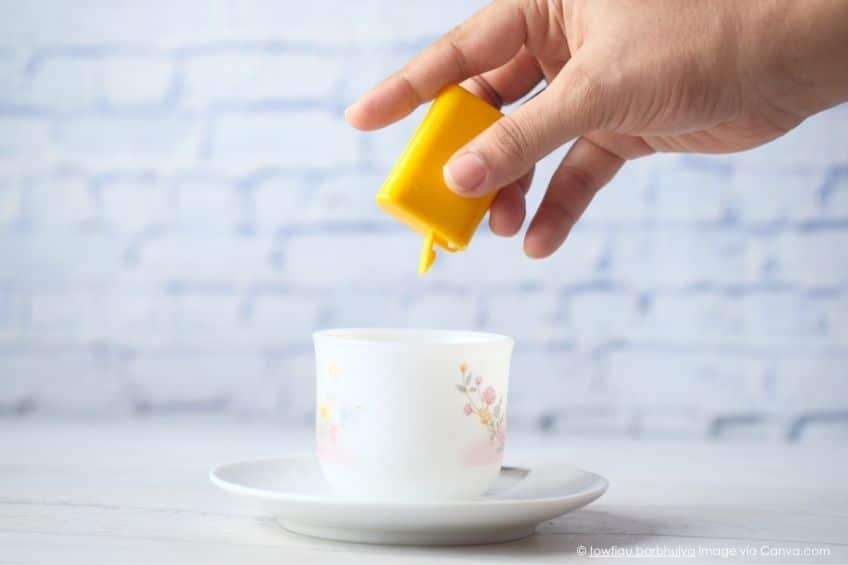The Skinny:
Americans consume too much refined and added sugar period. This seemingly unbridled quest for something sweet has led to increased risks of type 2 diabetes, weight gain and heart issues, among other problems. The U.S., in fact, leads the world in per capita sugar intake with an average of more than 126 grams a day—more than 10 times the lowest daily recommended amount. Admittedly, high sugar consumption is no secret, especially among those seeking to lose weight. This is why Americans are always looking for alternatives that seem healthier and perhaps have fewer calories. The goal is admirable, but the quest isn’t that simple as both natural sugars and artificial substitutes have their pluses and minuses. The healthiest option is to just reduce the consumption of all sugars and substitutes altogether. But short of this WellWell has broken out some sweet & sour white sugar alternatives on how best to get a sweet fix with the lowest risks and highest benefits. Read on.
The Slate:
Monk Fruit
Monk fruit is a lesser-known natural sweetener that is low in sugar grams and free of carbs, which helps eliminate sugar spikes. These sweeteners also are reportedly less bitter-tasting than stevia or some artificial sweeteners. Monk-based sweeteners are increasingly available, but it is wise to read their labels as some contain added sweeteners which may offset some of monk fruit’s natural benefits.
Stevia
Stevia is another natural sweetener that is said to be about 300 times as sweet as sugar. This means a little goes a long way. Because of its impact, some assume incorrectly that it is an artificial sweetener rather than a natural one. As with anything else, labels and production are important. It is recommended to use stevia extract, rather than stevia powder, which may contain undesirable filters.
Lucuma
Known as The Gold of the Incas, lucuma is made from the lucuma tree fruit. Although uncommon, lucuma in powder form is seen as one of the best natural sweeteners because it has zero carbs. It has the added benefits of containing potassium and being high in antioxidants. It may also reduce blood sugar surges.
Cinnamon
Cinnamon is seen as more of a spice than a sweetener, but it can be added to drinks and some baked items to sweeten them up. While it doesn’t provide the same sugary kick as other sweeteners, it can provide a boost that reduces the desire to add other sugars. One note, not all cinnamons are the same. Cassia cinnamon, for example, is sweeter than Ceylon cinnamon.
Dates
Fruits are another way to add sweetness to foods and dates are among the best examples of this. Dates are an excellent alternative to refined sugar. Beyond this, they hold other health benefits. Admittedly, you can’t really stick fruits into most drinks to add some sweetness, but they can be used in cereals, baked goods, other dishes, smoothies and more. They make great snacks too. Dates also provide the benefit of fiber, potassium, magnesium, manganese, vitamin B6, and carotenoid and polyphenol antioxidants.
Fruit Purées
Applesauce and other fruit purées think bananas, mangoes, etc., are a great substitute for refined sugar, especially when it comes to recipes for cakes, cookies, muffins and breads. Many of these purees provide other benefits as well, such as folate manganese, magnesium and vitamins. One note. Like almost sweet fruit, they do contain natural sugar so overloading on dried fruits or fruit purees is not advised. It is also important to make sure that any store-bought purees do not contain added sugars.
Honey
Honey is an all-natural sweetener. But it should be noted that while offering some health benefits, it is still relatively high in natural sugars and calories, which means moderate consumption is advised. The good news is that honey also contains vitamins, antioxidants and anti-inflammatory properties.
Molasses
Molasses is another option that is reportedly much healthier than brown and white sugar. Beyond this, molasses is high in magnesium and copper and also contains some iron and potassium. While it is easily used in cereals, baking and other items, molasses is still high in sugar making it something those dealing with diabetes should avoid.
Real Maple Syrup
The operative here is “real.” Avoid store-bought, commercialized syrups that are loaded with additives. Real maple syrup is a great brown sugar alternative, especially for people who are just trying to cut out processed sugars. They can be used for pancakes and waffles, but also in a number of baking recipes. These syrups also work well to sweeten coffee and tea. While high in sugar, they still have a lower glycemic index than brown or white sugar and are high in antioxidants and prebiotic fibers.
Artificial Sugars
These well-known sweeteners—examples include saccharin (Sweet n’ Low®), aspartame (Equal®) and sucralose (Splenda®)—are also well-liked. They are all extremely sweet but after few if any calories. But that’s about all they have. Artificial sweeteners have virtually no nutritional value. They also come with plenty of red flags, which means consumption should be limited. Concerns include these products creating cravings for more sweet and sugary items; potential links to heart attacks and strokes; and seemingly unsubstantiated claims they can cause cancer when consumed in large quantities.
Eyes Up:
What’s your go-to sugar alternative? Tell us at info@wellwellusa.com.










